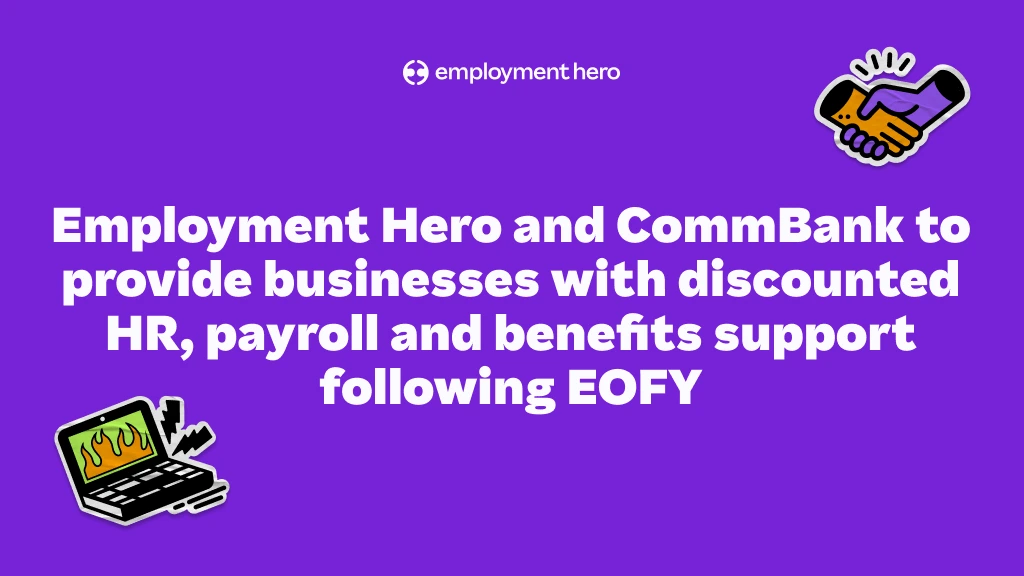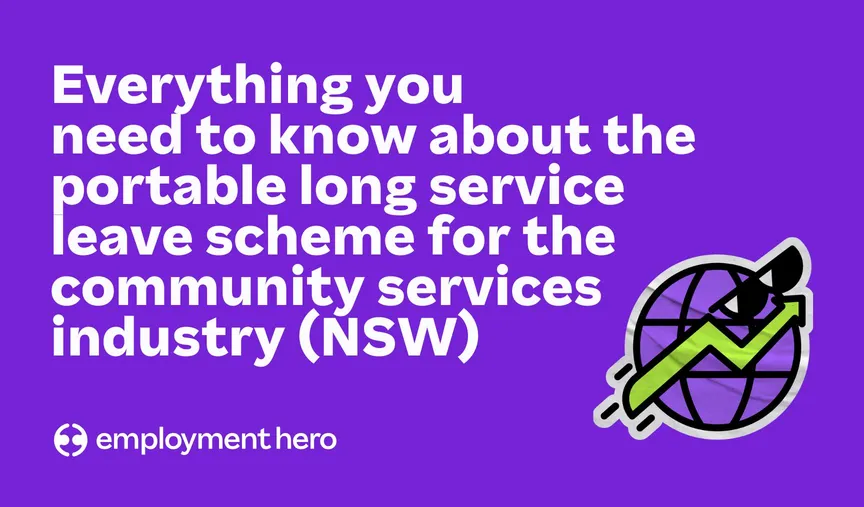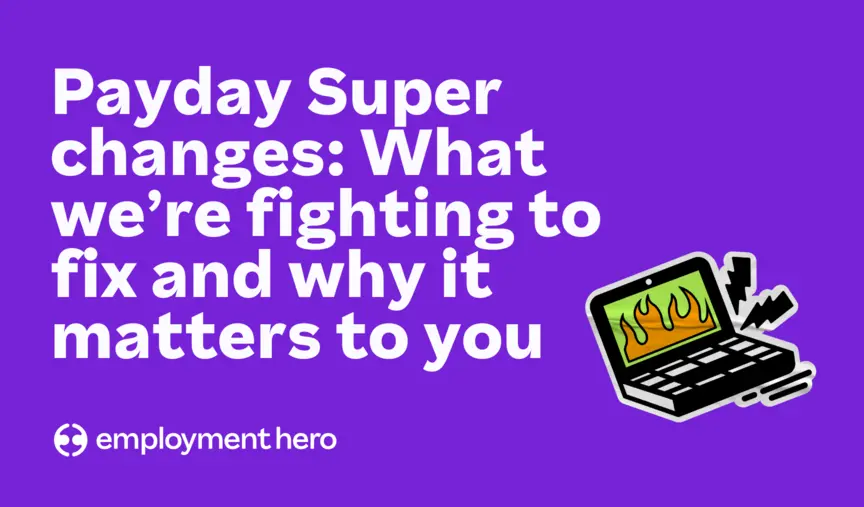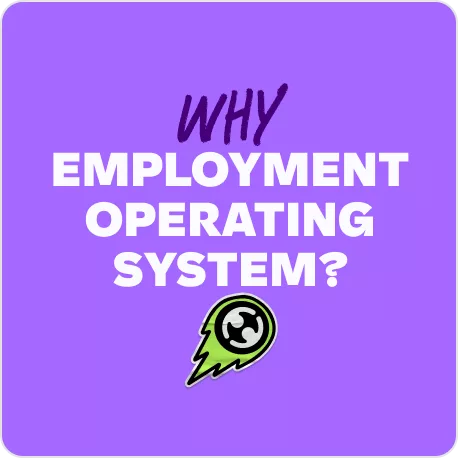8 Common HR Mistakes To Avoid For Businesses Owners
There are a lot of common yet costly mistakes business owners make when it comes to hiring, managing and retaining their employees. Here are eight to avoid.

Contents
Running a business is hard, and it often feels like there aren’t enough hours in the day to get everything done that you want to, or should, do.
Boring and seemingly non-urgent tasks, such as HR-related activities, quickly drop to the bottom of your to-do list, and you figure you’ll get to them “tomorrow.” But “tomorrow” never seems to come, and that’s when business owners like yourself get into real trouble and make the following mistakes.
Don’t put yourself or your business at risk; prioritise your to-do’s for this week and fix these common HR mistakes before it’s too late.
8 HR mistakes that will put your business at risk
The world of human resources can be a minefield, you have lots of tasks to juggle from managing the hiring process, employee retention, payroll management, office management and HR administrative tasks.
You see, it doesn’t matter if you have a staff of 9 people or 99, there are essential human resource requirements every business needs to get right. Yet employment laws are complex and so easy to get wrong.
Here are our eight top HR mistakes you should avoid at all costs.
1. No written employment contracts
Kicking us off on this journey through some of the biggest HR mistakes businesses face is having no employment contracts. Having no written employment contracts is a big no-no within employment compliance.
While an employment contract can be verbal, it’s important to record the exact terms and conditions of employment alongside a detailed job description when you hire someone.
Failing to set out the job requirements in writing makes it difficult to manage your employees, particularly when there’s a problem.
In addition, without a written contract, you’re probably not protecting your business assets like your intellectual property and other competitive information from falling into the wrong hands. However, it’s important to remember that written employment contracts are only useful if they’re up-to-date with current laws.
Simply reusing an old template can land you in all sorts of trouble because employment laws are complex and tend to change frequently. Sometimes an out-of-date template can open you up to potential litigation in the future.
Especially where you rely on it and simply don’t check whether new legal requirements and entitlements apply to your new employee.
For HR beginners, it’s essential to get a grasp on the basics. Download our free guide, Introduction To Managing Human Resources, to get started.
Action Item: Make sure your employment contracts are written and set a reminder to update them frequently. Or subscribe to a service that offers you templates that are kept compliant with the current regulations.
2. Underpaying employees
Failing to apply correct Award conditions to your employees can lead to underpaying your staff. Left unchecked, these underpayments can amount to significant back pay claims from staff, along with a fair degree of reputational damage to your business.
Modern Awards set out the minimum wages and conditions for employees depending on the:
- industry in which you operate
- nature of the duties performed by the employee
- seniority of the employee.
So, it’s critical for you to identify the correct Award for your employees. Even if you’re paying above Award rates, you still have to meet other provisions of the Award including providing the correct entitlements for leave, penalty rates and hours of work. It’s not uncommon to have an employee make a back pay claim for entitlements they did not receive despite being paid in excess of the Award requirements.
Action Item: Audit your employee classifications and award payments and entitlements.
3. Employing workers as contractors when they should be employees
Figuring out whether a new worker is an employee or an independent contractor isn’t as easy as it sounds. In fact, it’s one of the most common HR mistakes businesses make because it’s really rather complicated (and costly too).
In simple terms, employees work in your business and are part of your business, while contractors run their own business and provide services to your business.
You can’t simply classify a worker as a contractor just because they have an ABN (in Australia) or they offer specialist skills. And you can’t classify them as a contractor because the work is short-term or irregular.
It’s the working arrangement that matters, not the amount of time they work for you. Penalties for getting the whole employee/contractor arrangement wrong can be stiff.
For example, say you employ ten independent contractors who should be employees, this can amount to $54,000 in penalties for the breach, multiplied by the ten independent contractors you’ve hired. And that’s before any additional back pay entitlements they may have!
Action Item: Have an attorney review your contractor agreements to ensure they are classified properly.
4. Firing someone on the spot
Whether it’s for poor performance or serious misconduct, you can’t fire anyone on the spot without serious legal consequences. You must investigate the matter thoroughly and adhere to due process.
This includes following any procedures set out in the applicable Award, as well as your own internal processes. Detailed records are also essential. Where the matter is related to poor performance, it’s really important to give the employee the chance to improve.
Performance management needs to be genuinely focused on lifting performance standards. To minimise your exposure to claims for unfair dismissal due to procedural deficiencies, you need to have a well-defined framework for addressing performance issues.
It’s important to identify the areas of underperformance and discuss them with your employee in specific terms through performance reviews. You also need to give employees enough time to improve their performance. Any employee not given a chance to improve before being dismissed is likely to lodge an unfair dismissal claim.
This involves developing a detailed performance improvement plan. For more on this subject, and to minimise exposure to unfair dismissal claims, read our post on creating a discipline and termination policy.
Action Item: Set up a performance management plan to document performance issues.
5. Having poor onboarding practices
As one of the most common HR mistakes by the HR department, poor onboarding and induction processes can lead to rapid-fire turnover.
While it’s important to put time and energy into finding the right people for your business, it’s equally important to help settle in new employees. Many businesses fail miserably at doing this, which can have disastrous consequences, most common of which is the new hires don’t stick around.
To ensure your HR department avoids this mistake, make sure the introduction you give to new hires leaves them with an overwhelmingly positive impression.
But, don’t leave everything until their first day. Prepare new employee paperwork and send this to them in advance.
Likewise, organise their work area and equip it with supplies alongside an up-to-date employee handbook. Providing an outdated employee handbook could lead to a slower onboarding.
Order technology or equipment, along with business cards and access keys before their first day of work so they can hit the ground running.
And remember, it pays to make a really big deal of your new hire’s first day. Making your employees feel welcome from the get-go is a big part of getting them to stick around for the long term.
To streamline your onboarding process and reduce administrative burdens, consider downloading our free guide, Streamline HR Processes and Reduce Admin. Action Item: Create a checklist and onboarding process if you don’t already have one.
6. Failing to keep adequate records
As an employer, there are many employee records that you are required to keep.
Recording an employee’s terms and conditions during the hiring process can save you a lot of pain later on and minimise the potential for disputes.
Without good employee documents, you expose your business to all kinds of non-compliance risk. And there’s next to no chance of being able to defend an unfair dismissal claim or other employment-related issues without solid documentary support to show you followed due process.
To avoid making this HR mistake, you must have an organised system for managing records on time and attendance, payroll, wages, WHS, and more.
Having HR software equipped with an employee self-service feature will allow employees to keep their own employee data up-to-date, allowing you to automate HR processes and save time.
Learn more about the benefits of digitising your HR processes with our comprehensive guide, Your complete guide to taking HR digital. Action Item: Create a filing system with files for each of your current and past employees. If your documents are currently scattered, make sure to move them into your new filing system right away.
7. Not enforcing workplace policies
It’s one thing to have solid, well-written HR policies. It’s quite another for them to protect your business. All too often, business owners go to the trouble of drafting robust HR policies without enforcing them.
For a company policy to be effective, it’s critical to ensure your employees understand how to comply with the policy and the consequences if they breach it. You should also make sure employees sign off on a document acknowledging that they are aware of the policy and understand it completely
In the event that you wish to terminate employment for breach of a workplace policy, it’s essential that you can show that the employee was aware of the policy and that it was both lawful and reasonable.
Action Item: Compile your workplace policies, gather signatures from all employees for the policies, and make sure policies are posted when required.
8. Manual HR processes
If you are still using MASSIVE spreadsheets and transferring data across multiple systems. If you are facing new employees with a mountain of paperwork on their first day… STOP RIGHT THERE!
Manual HR processes are just a one-way ticket to errors and mistakes. Causing huge HR problems in the future. Another thing to avoid at all costs.
Having a digital solution for managing HR solves this issue.
The benefits of HR Software are endless. It will not only save you time and money – but also lower the risks of any manual HR problems. However, if HR software is implemented badly this can also lead to multiple errors as well!
So make sure you get a proper implementation team onboard if you are going down the HRIS route.
In the ever-evolving landscape of workplace leadership, artificial intelligence is beginning to play a larger role. Read our article on Reporting to a robot: Will AI have a place in leadership in the future? to explore this fascinating development.
Need more help from HR professionals?
A lot of people are never taught how to be great managers. Fortunately, HR can lend a helping hand – setting them up for greatness. Learn more in our post, How can HR help managers succeed in their role?.
If you think you may be at risk of making these (or other) common HR mistakes, download our Intro to HR management and gain some peace of mind. It will help you cut through and get straight to the essentials, so you don’t waste your precious time.
Related Resources
-
 Read more: Employment Hero and CommBank to provide businesses with discounted HR, payroll and benefits support following EOFY
Read more: Employment Hero and CommBank to provide businesses with discounted HR, payroll and benefits support following EOFYEmployment Hero and CommBank to provide businesses with discounted HR, payroll and benefits support following EOFY
Eligible CommBank Yello for Business customers will get the first 3 months free on any Employment Operating System subscription with…
-
 Read more: NSW Government introduces Portable Long Service Scheme for the Community Services Industry
Read more: NSW Government introduces Portable Long Service Scheme for the Community Services IndustryNSW Government introduces Portable Long Service Scheme for the Community Services Industry
The NSW Government has introduced portable long service leave for the community services industry. Learn what it is and what…
-
 Read more: Payday Super changes: What we’re fighting to fix and why it matters to you
Read more: Payday Super changes: What we’re fighting to fix and why it matters to youPayday Super changes: What we’re fighting to fix and why it matters to you
Big changes are coming to how superannuation is paid in Australia. Here’s what we’re asking Treasury to seriously consider updating…











